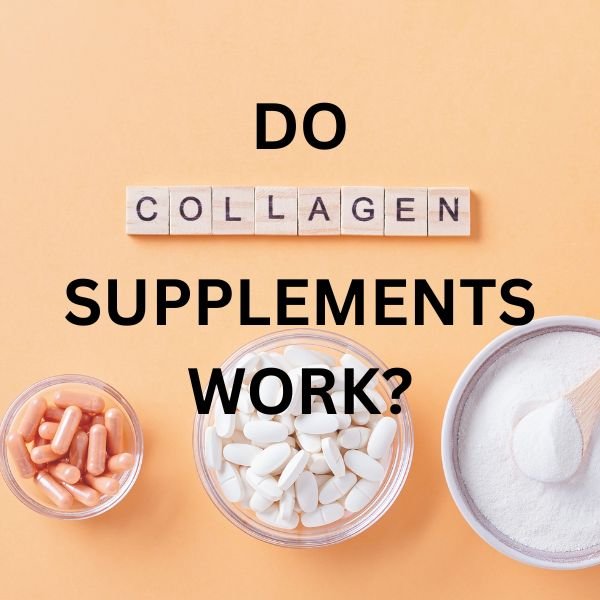Collagen supplements—powders, gummies, drinks—are everywhere on social media. They promise glowing, youthful skin. But do they actually work, or are they just marketing buzz? Let’s find out what real science shows.
What Is Collagen & Why Is It Popular?
Collagen is the most abundant protein in your body. It gives structure to skin, muscles, bones, and tendons. Over 1% of collagen production falls every year after your mid‑20s, causing skin to sag and wrinkle. Because collagen levels drop over time, many brands promote collagen supplements to “refill” what’s lost.
What Do Brands & Influencers Claim?
You’ve likely seen collagen powders or drinks on TikTok and Instagram, with celebrities claiming they shrink wrinkles, boost skin tightness, and reduce dryness. Products include marine‑ or bovine‑sourced collagen, often paired with vitamin C or hyaluronic acid to boost results.
What Does the Science Actually Say?
Evidence That Collagen May Help
- A 2023 review of 1,721 participants across 26 RCTs confirmed meaningful gains in firmness and moisture compared to placebo groups.1
- Overall, properly formulated hydrolyzed collagen appears to deliver modest skin benefits when taken consistently for at least 2–3 months.
- A study conducted on 20 participants noticed a significant improvement in skin elasticity and friction 3 months after taking oral collagen which persisted at 16 weeks.2
Why Some Experts Are Skeptical
• Many studies are funded or run by supplement companies, raising concerns about bias.
• Collagen is digested into amino acids and peptides. The body then uses these building blocks wherever needed-not necessarily in skin. Experts stress the collagen doesn’t magically target your face.
• Overall, while the science is promising, large high‑quality trials are still limited, and results vary by individual.
What Do Real Users Report?
Some users share positive results—better hydration, smoother skin, stronger hair or nails. Others report no change or even acne. Most agree that regular use for 8-12 weeks is needed before noticing anything, if at all.
Hype vs Reality
- Collagen supplements may help modestly—but they are not miracle cures.
- Effective products usually contain hydrolyzed peptides plus vitamin C and hyaluronic acid.
- Topical collagen creams generally only hydrate the skin’s surface—they can’t reach deep layers where collagen matters.
- Gelatin or unhydrolyzed sources are less effective because they are harder to digest and absorb.
What Dermatologists Recommend Instead
- Sunscreen: protects your natural collagen from UV damage and prevents new wrinkles.
- Topical retinoids and vitamin C serums: proven to boost collagen production and smooth texture.
- Healthy habits: good protein diet, vitamin C, zinc, antioxidants, avoiding sugar and smoking help support skin health from within.
Who Might See Some Benefits?
- People with low protein diet or nutritional gaps.
- Those who can commit to daily use for 2–3 months with realistic expectations.
- Users who choose trusted brands offering hydrolyzed collagen plus vitamin C and preferably third‑party testing.
Summary Tips
| Tip | Why It Matters |
|---|---|
| Use hydrolyzed collagen (peptides) | Better absorption and effectiveness |
| Take for at least 8–12 weeks | Benefits show gradually over time |
| Avoid fillers or extra sugar | Hidden ingredients may lower effectiveness |
| Pair with vitamin C or hyaluronic acid | Supports collagen production and skin hydration |
| Don’t skip sunscreen or skincare routine | Real improvement comes from holistic habits |





